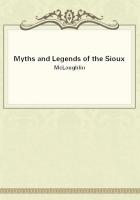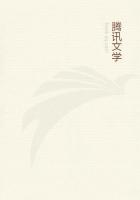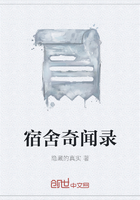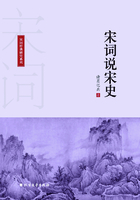Then followed the speech of Maitre Alem-Rousseau on behalf of the Veuve Lacoste.Among other things the advocate brought forward the fact that Euphemie was not so poorly born as the prosecution had made out, but that she had every chance of inheriting some 20,000 francs from her parents.It was notorious that when Henri Lacoste first broached the subject of marriage with Euphemie he was not so rich as he afterwards became, but, in fact, believed he had lost the inheritance from his brother Philibert, this last having made a will in favour of a young man of whom popular rumour made him the father.This was in 1839.The marriage was celebrated in May of 1841.Henri Lacoste, it is true, had hidden his intentions, but when news of the marriage reached the ears of brother Philibert that brother was so delighted that he destroyed the will whichdisinherited Henri.It was thus right to say that Euphemie became the benefactor of her husband.Where was the speculative marriage on the part of Euphemie that the prosecution talked about?
Maitre Alem-Rousseau made short work of the medico-legal evidence (he had little bother with the facts of the illness).Poison was found in the body.The question was, how had it got there? Was it quite certain that arsenic could not get into the human body save by ingestion, that it could not exist in the human body normally? The science of the day said no, he knew, but the science of yesterday had said yes.Who knew what the science of to-morrow would say?
The advocate made use of the evidence of a witness whose testimony I have failed to find in the accounts of the trial.This witness spoke of Lacoste's having asked, in Bordeaux, for a certain liquor of Saint-Louis,'' a liquor which Mme Lacoste took to be an anisette.No,'' said Lacoste,women don't take it.'' Maitre Alem-Rousseau had tried to discover what this liquor of Saint-Louis was.During the trial he had come upon the fact that the arsenical preparation known as Fowler's solution had been administered for the first time in the hospital of Saint-Louis, in Paris.He showed an issue of the Hospital Gazette in which the advertisement could be read: Solution de Fowler telle qu'on l'administre a SAINT-LOUIS!'' The jury could make what they liked of that fact.
The advocate now produced documents to prove that the marriage of Euphemie with her grand-uncle had not been so much to her advantage, but had been--it must have been--a marriage of affection.At the time when the marriage was arranged, he proved, Lacoste had no more than 35,000 francs to his name.Euphemie had 15,000 francs on her marriage and the hope of 20,000 francs more.The pretence of the prosecution, that her contentment with the abject duties which she had to perform in the house was dictated by interest, fell to the ground with the preliminary assumption that she had married for her husband's money.
Maitre Alem, defending the widow's gayish conduct after her husband's death, declared it to be natural enough.It had been shown to be innocent.He trounced the Press for helping to exaggerate the rumours which envy of Mme Lacoste's good fortune had created.He asked thejury to acquit Mme Lacoste.
The Procureur du Roi had another say.It was again an attempt to destroy the `system' of the defence, but by ****** a mystery of the fact that the Lacoste-Verges marriage had not taken place in a church he gave the wily Maitre Alem an opportunity for following him.
The summing-up of the President on the third day of the trial was, it is said, a model of clarity and impartiality.The jury returned on all the points put to them a verdict of Not guilty'' for both the accused.
Another verdict may now seem to have been hardly possible.The accusation was built up on the jealousy of neighbours, on chance circumstances, on testimonies founded on petty spite.But, combined with the medico-legal evidence, the weight of circumstance might easily have hoisted the accused in the balance.
It will be seen, then, how much on foot the case of the Veuve Lacoste was with that of the Veuve Boursier, twenty years before.
It is on the experience of cases such as these two that the technique of investigation into arsenical poison has been evolved.In the case of Veuve Boursier you find M.Orfila discovering oxide of arsenic where M.Barruel saw only grains of fat.Four years previous to the case of the Veuve Lacoste that same Orfila came into the trial of Mme Lafarge with the first use in medical jurisprudence of the Marsh test, and based on the experiment a cocksure opinion which had much to do with the condemnation of that unfortunate woman.In the Lacoste trial you find the Parisian experts giving an opinion of no greater value than that of Orfila's in the Lafarge case, but find also an element of doubt introduced by the country practitioner, with his common sense on the then moot question of the accumulation, the absorption, and elimination of the drug.
Nowadays we are quite certain that our experts in medical jurisprudence know all there is to know about arsenical poisoning.What are the chances, however, in spite of our apparently well-founded faith, that some bristle-headed local chemist with a fighting chin will not spring up at an arsenic-poisoning trial and, with new facts about the substance,blow to pieces the cocksure evidence of the leading expert in pathology? It may seem impossible that such a thing can ever happen again--a mistake regarding the action of arsenic on the human body.But when we discover it becoming a commonplace of science that one human may be poisoned by an everyday substance which thousands of his fellows eat with enjoyment as well as impunity--a substance, for instance, as everyday as porridge--who will dare say even now that the last word has been said and written of arsenic?
But that, as the late George Moore so doted on saying, is quelconque.
M.Orfila, sure about the grocer of the Rue de la Paix, was defeated by M.Barruel.M.Orfila, sure about the death of Charles Lafarge, is declared by to-day's experts in criminal jurisprudence and pathology to have been talking through his hat.According to the present experts, says Philip Curtin,'' Lafarge was not poisoned at all, but died a natural death.Because of M.Devergie it was for the Veuve Lacoste as much `touch and go' as it was for the Veuve Boursier twenty years before.Well might Marie-Fortunee Lafarge, hearing in prison of the verdict in the Lacoste trial, say, Ma condamnation a sauve Madame Lacoste!''
In all this there's a moral lesson somewhere, but I'm blessed if I can put my finger on it.















